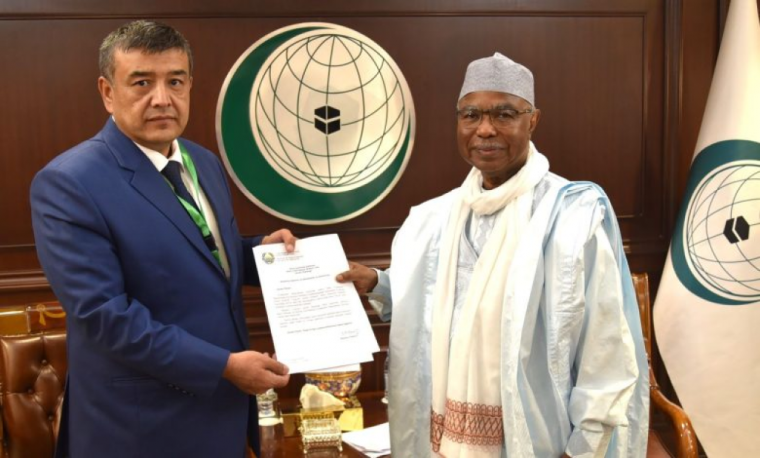Tashkent city



Accepting the credentials of the permanent representative, the OIC Secretary General congratulated him on assuming the office and wished him success in carrying out his responsible mission.
The current state and prospects of cooperation between Uzbekistan and OIC were discussed during the meeting. The sides also expressed mutual interest in intensifying interaction in such important areas as education, support for youth and innovations.
The OIC Secretary General noted Uzbekistan's significant contribution to the development of Islamic civilization, science and culture, stressing that the country has historically been the center of scientific discoveries, philosophical thought and spiritual heritage of the Islamic world. It was also emphasized that today Uzbekistan continues to play an important role in strengthening the unity of the Islamic Ummah, promoting initiatives aimed at sustainable development, education and preservation of cultural heritage, which makes it one of the key partners in implementing the goals of the Organization of Islamic Cooperation.
It is worth recalling that Nodirjon Turgunov arrived in Riyadh in March 2024 as the Ambassador of Uzbekistan to Saudi Arabia.
He served as Consul General in the city of Jeddah from 2021 to 2024.
He has been in the system of the MFA since 2016. He worked in various positions in the Consular and Legal Department of the Ministry of Foreign Affairs. In 2019-2021 he served as Consul General of Uzbekistan in the city of Aktau (Kazakhstan), in 2021-2024 - in the city of Jeddah (Saudi Arabia).
He speaks Arabic and Russian.
Nodirjon Turgunov replaced Ulugbek Maksudov, who served from 2018-2024 as the Ambassador of Uzbekistan to Saudi Arabia and permanent representative to the Organization of Islamic Cooperation, headquartered in the city of Jeddah.

A group of experienced scholars and imams travelled to the Republic of Korea. During the visit, the delegation met with Uzbek compatriots living in the country.
The imams conducted educational discussions in mosques across South Korea, addressing topics such as the virtues of earning a lawful livelihood, protection from harmful ideologies, loyalty to the homeland, respect for parents, raising children properly, and fulfilling trusts.
Press Service of the Muslim Board of Uzbekistan